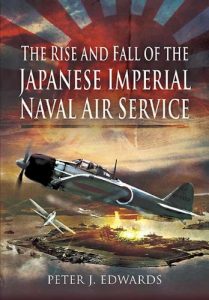This book describes in considerable detail the people, events ships and aircraft that shaped the Air Service from its origins in the late 19th century to its demise in 1945. The formative years began when a British Naval Mission was established in Japan in 1867 to advise on the development of balloons for naval purposes. After the first successful flights of fixed-wing aircraft in the USA and Europe, the Japanese navy sent several officers to train in Europe as pilots and imported a steady stream of new models to evaluate.
During World War One Japan became allied with the UK and played a significant part in keeping the German fleets of ships and submarines at bay in the Pacific and Indian Oceans. However, in the international naval treaties that followed they felt betrayed, since the number of capital ships, battleships and cruisers, that they were allowed was below those of the USA and the UK.
Aircraft carriers were not included, so a program of carrier building was started and continued until World War Two. At the same time they developed an aircraft industry and at the beginning of war their airplanes were comparable, and in some instances superior, to those of the British and Americans.
Much prewar experience was gained during Japan’s invasion of China, but their continued anger with America festered and resulted in their becoming allied with Germany, Italy and the Vichy France during World War Two. There followed massive successful attacks on Pearl Harbor, the Philippines, the Southern Islands, Port Darwin and New Guinea.
The British were decimated and the USA recoiled at the onslaught, taking over a year to regroup and take the war to the Imperial Japanese forces. Throughout the conflict many sea battles were fought and the name Zero became legendary. When Japan eventually capitulated after the Atomic bombs were dropped the Japanese Imperial Air Service was disbanded.






